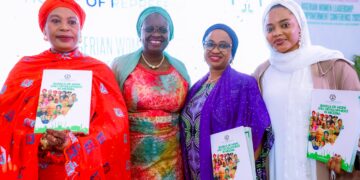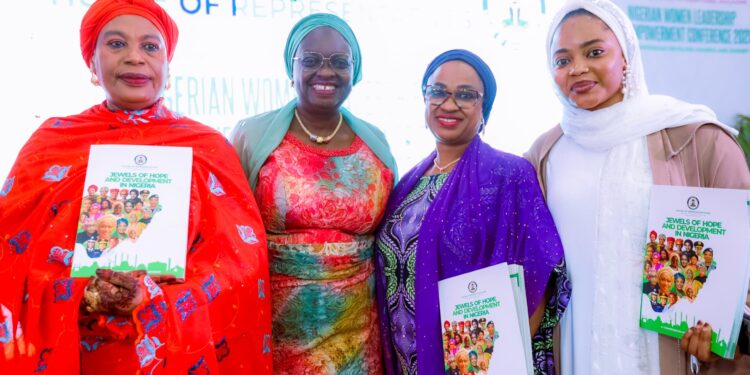Ogun State Deputy Governor, Engr. Noimot Salako-Oyedele, has emphasized that women’s political participation should not be viewed as a contest against men but as a partnership that fosters national progress.
She stressed that increasing female representation does not diminish male influence but rather creates a more balanced and effective government.
Salako-Oyedele made this assertion in her keynote address at the Nigerian Women Leadership and Empowerment Conference 2025, themed “Women Inclusion in Politics: Challenges, Prospects, and the Way Forward.”
The event was organized by the House of Representatives Committee on Women Affairs and Social Development in collaboration with Nigerian Women International Magazine and held at the NAF Conference Center, Abuja.
She pointed out that a common misconception about women in politics is that it threatens male dominance, as though leadership is a limited resource.
Citing global examples, she noted that nations with strong female representation in parliament, such as Iceland and Rwanda, have demonstrated better social policies, reduced corruption, and inclusive economic growth.
“If we truly want to build a Nigeria where opportunity is available to all, then we must see women in politics not as competitors or usurpers but as partners in progress”.
“The truth is, politics is not a zero-sum game. Increasing women’s representation does not mean taking power away from men; it only means that we create a more balanced and effective government”, she said.
Highlighting the challenges women face in politics, Salako-Oyedele listed structural barriers that confine them to less competitive political parties, financial constraints due to the expensive nature of politics, cultural and societal norms that often urge women to ‘wait for their turn,’ and electoral violence and intimidation.
“If we truly want to have an inclusive democracy, we must address the challenges women face in politics, including structural barriers, lack of funds, cultural and social norms, and electoral violence,” she stated.
To achieve greater inclusion, she advocated for affirmative action within major political parties, continuous political engagement beyond election periods, sustained financial support for female politicians, the encouragement of male allies in advocacy efforts, and strategic positioning of women for leadership roles.
She further emphasized that women’s political inclusion is not just about fairness but about effectiveness, asserting, “Societies thrive when women have equal opportunities to lead.”
In his remarks, the Speaker of the House of Representatives, Rt. Hon. Tajudeen Abass, reaffirmed the commitment of the legislature to advancing gender equality.
He stated that the House would continue to conduct diligent oversight of government institutions to ensure adherence to the National Gender Policy, strengthen the Women’s Caucus for effective advocacy, and support electoral reforms that mandate a fixed quota for female candidates.
“The House will also enable legislation to protect women in politics from violence and intimidation, aligning our political framework with the constitution and principles of fairness and freedom,” he said.
He further revealed that he had recently urged the All Progressives Congress (APC) to include all its female members in the party’s national executive committee—a groundbreaking move in the party’s history.
Speaking at the event, the Chairman of the House Committee on Women Affairs and Social Development, Hon. Kafilat Adetola Ogbara, stated that the conference was convened to address barriers to women’s leadership, inspire confidence in future generations, and celebrate the resilience and potential of Nigerian women.
She also announced plans to unveil a National Compendium for Women in Leadership, which will document the contributions of women across various sectors and highlight their leadership potential for the nation’s development.
“Each one of us has a role to play in shaping the future of women’s leadership in Nigeria”.
“Together, we can advocate for policies that promote gender equality, support initiatives that empower women, and create an avenue where every woman’s voice is heard, valued, and respected. Our voice is our power”, she said.

























